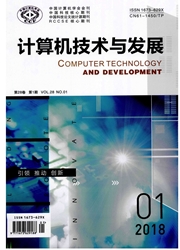

 中文摘要:
中文摘要:
针对压缩感知理论实际应用过程中,稀疏基先验信息未知的情况下,如何从信号的压缩测量值中学习与待重构信号本身相适应的字典的同时,利用该字典重构出原始信号的问题,基于已有的盲压缩感知理论(BCS),在稀疏基为双稀疏字典结构的约束条件下,提出了一种新型的盲压缩感知算法(D-BCS)。所提算法交替执行稀疏编码阶段和字典更新阶段。在稀疏编码阶段,采用分裂Bregman迭代求解非凸的l1最小化问题,从而实现稀疏系数矩阵的更新;而在字典更新阶段,则通过将目标优化函数转化为类LASSO问题,并利用LASSO算法来实现字典原子的逐列更新。在不同采样率下,对多个测试视频帧进行仿真对比实验,实验结果表明,所提算法能很好地从压缩测量值中恢复出原始信号,且表现出了最佳的性能改进。
 英文摘要:
英文摘要:
Aiming at the problem of simultaneous image recovery and dictionary learning from Compressed Sensing (CS) measurements, where the sparse basis or the dictionary is unknown prior in the practical application of CS theory, in view of the existing Blind Com- pressed Sensing (BCS) theory, a novel Blind Compressed Sensing (D-BCS) algorithm based on the double sparsity dictionary has been proposed. It is an iterative method that alternates between sparse-coding and dictionary update steps. In the sparse coding stage of the pro- posed scheme, a split Bregman iteration based technique has been utilized to solve the non-convex 11 minimization problem to update the sparse coefficient matrix. And in the dictionary update stage, the optimization function is converted into a LASSO-like problem and the dictionary atoms are updated column by column using LASSO algorithm. Comparative simulation experimental results of several test vide- o frames with a variety of sampling ratios have demonstrated that the proposed algorithm can recover the original signal from CS measure- ments very well and exhibits state-of-the-art performance improvements in its ability for recovery of the compressed video frames.
 同期刊论文项目
同期刊论文项目
 同项目期刊论文
同项目期刊论文
 期刊信息
期刊信息
